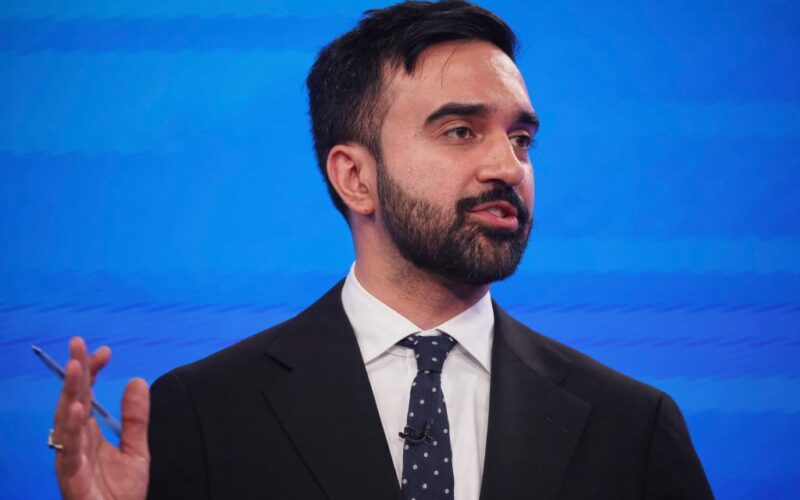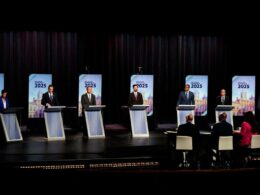In a moment when antisemitism is surging globally and American Jews feel increasingly unsafe in their own communities, the words of public figures matter more than ever. That’s why it’s both shocking and deeply dangerous to hear Zohran Mamdani, a leading candidate in New York City’s mayoral Democratic primary, defend the phrase “Globalize the Intifada” as a legitimate expression of Palestinian rights.
Let me be crystal clear, Mr. Mamdani: “Globalize the Intifada” is not a benign slogan. It is not a call for peace or coexistence. It is a rallying cry rooted in two bloody campaigns of terrorism — the First and Second Intifadas — that left thousands of civilians dead, including Israelis, Palestinians, and Americans.
For Jewish communities around the world, and especially in New York City, the phrase evokes visceral memories: suicide bombings on buses, families shattered in cafés, and children murdered in their beds.
Mamdani recently appeared on “The Bulwark Podcast,” where he defended the use of the phrase, portraying it as a call for freedom rather than an incitement to violence. That may be his interpretation. But words do not exist in a vacuum.
This phrase has a clear intent and a violent legacy, and its impact is not theoretical. It fuels fear, legitimizes terror, and traumatizes the Jewish community. Rebranding it as peaceful resistance is not only intellectually dishonest, but it’s dangerous. It whitewashes bloodshed and puts real lives at risk.
More than a slogan, we are now witnessing what it looks like when this dangerous rhetoric is taken literally. The firebombing in Boulder of elderly Jewish residents marching for the release of hostages taken by Hamas and the shooting of two innocent Israeli embassy workers leaving an event at a museum in Washington, D.C., are not abstract threats—they are the personification of “Globalize the Intifada.” This is what happens when incitement is normalized and hate is excused under the guise of political expression.
To portray that phrase as an acceptable form of advocacy is not just irresponsible, it’s reckless. It provides cover for hate and violence, emboldens extremists, and further normalizes the rising tide of antisemitism we’re seeing in our schools, on our streets, and, perhaps most alarmingly, from our politicians.
This isn’t about silencing criticism of Israel. In fact, many vocal critics of Israeli policy are also equally committed to opposing antisemitism. But there is a clear line between political critique and glorifying violent resistance. A mayoral candidate — especially someone asking to lead the largest Jewish population outside of Israel — must know the difference. More importantly, they should care and be brave enough to stand on the right side of it.
Sadly, what Mamdani said isn’t happening in isolation. It’s part of a broader trend in which coded or inflammatory rhetoric is used to signal allegiance, score political points, or dodge accountability. Words like “Intifada” are repurposed to sound bold or defiant, stripped of the deadly consequences they actually represent. For those who’ve lived through what the word really means, there is no ambiguity.
New York City, like so many cities across North America, has witnessed firsthand the consequences of hate-driven rhetoric. True mayoral leadership means rising above slogans and standing firmly against violence and hate in any form. It means building bridges across communities, protecting all residents — Jewish, Muslim, Christian, and otherwise — and ensuring that the fight for justice never comes at the expense of another group’s safety.
Across the country, we’ve seen mayors step up in powerful ways: denouncing antisemitic attacks, strengthening hate crime enforcement, launching interfaith initiatives, adopting the International Holocaust Remembrance Alliance definition of antisemitism, and speaking out clearly when the line is crossed. That’s the kind of leadership this moment demands. Not equivocation. Not redefinition. But moral clarity.
If Mamdani chooses to speak out on this issue, he must do so without dehumanizing Jews. Language matters, and he should use words that elevate dialogue, not foment danger. And if he cannot or will not, then his constituents — and his colleagues — must hold him accountable.
Words matter. Leadership matters. And if we are serious about protecting our communities and preserving our democratic values, we must demand better from those who seek to lead them.
Katz serves as chief government affairs officer at the Combat Antisemitism Movement (CAM) and previously held elected office as town supervisor in New Castle, N.Y.








